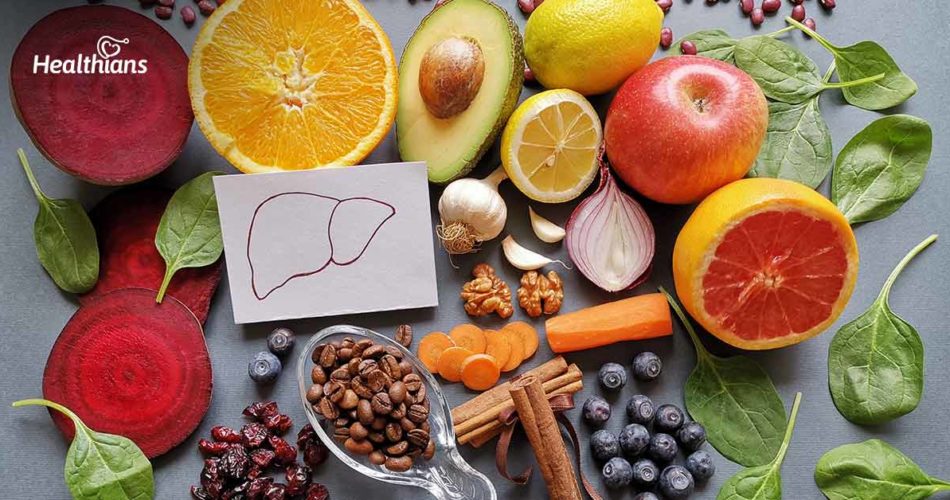Contributed by: Healthians Team
Introduction
You might believe you’re eating healthy – but some common, everyday foods and drinks may be fuelling the flames of inflammation, accelerating damage and generally wrecking your liver.
That being said, the best thing you can do to keep this vital detoxifying organ in good form, is by making small tweaks to your diet.
So, where should you start? Read on to know some simple liver-saving swaps you should make if you’re hoping to rescue and repair your body’s primary detox machine.
Here are 7 food swaps that can aid in liver cleansing and allow it to function efficiently.
Trade cookies and candies for seasonal fruits
Sweet treats have harmful effects on the liver. In addition to delivering lots of empty calories, it raises triglycerides (a marker for liver illness) and encourages fat deposits in the liver, which can lead to non-alcoholic fatty liver disease.
In fact, some studies demonstrate that sugar is just as bad for the liver as alcohol.
Furthermore, commercially baked cookies, doughnuts, and other sweets may include liver-harming trans fats.
Opt for fruits — particularly blueberries, apples and grapes — when you’re craving something sweet and satisfying.
Most fruits are rich in antioxidants that minimize inflammation, decrease fatty deposits and ease the functioning of the liver.
Citrus fruits are liver-friendly and provide the necessary enzymes that help in liver detoxification.
Swap soft drinks for sugar-free drinks
Soft drinks are loaded with sugar, which is damaging to the liver.
Fizzy drinks promote fatty deposits and raise the risk of non-alcoholic fatty liver disease (NAFLD).
According to some studies, regular consumption of these beverages may potentially lead to many diseases-including long term liver damage.
Other studies relate a larger intake of soft drinks to a higher likelihood of non-alcoholic fatty liver disease.
Opt for drinking cold coffee (in moderation), as it is a healthier option than sugar-sweetened soft drinks.
Studies suggest that certain chemicals in coffee make it an excellent choice to detoxify the liver, defend against different kinds of liver disease, and reduce the likelihood of liver cancer.
Trade-in butter for better fats
Butter contains a high concentration of saturated fat, which is worse for the liver than other types of fat — and even more hazardous than sugar.
Saturated fat consumption is associated with increased inflammation and a greatly higher risk of liver damage and serious liver disease, according to research.
Opt for extra virgin olive oil (EVOO), as it contains monounsaturated fats that present several protective effects on the liver.
Including olive oil as a part of your diet is a wise choice as it helps to reduce inflammation, lower triglycerides and protects against non-alcoholic fatty liver disease, among other effects.
Change out breakfast cereals for oats
Most breakfast cereals are super-high in sugar, low in fibre and made from refined grains, all of which are ingredients that can be harmful to your liver.
They’ve been shown to promote fat deposits and increase the likelihood of non-alcoholic fatty liver disease.
Opt for oatmeal as your go-to cereal breakfast. Apart from the array of health benefits, oats are high in fibre and contain liver-protective nutrients, plus beta-glucans that lessen inflammation, decrease triglycerides and minimize fatty deposits in the liver.
An additional bonus to eating a bowl of oats is that it makes for an ideal weight loss boosting food, which helps decrease your chances of developing liver disease.
Swap alcoholic cocktails for mocktails
Drinking too much alcohol takes a major toll on your liver, potentially increasing the risk of cirrhosis, an advanced liver disease marked by significant scarring, permanent damage and, ultimately, liver failure.
Opt for refreshing mocktails made with in-season fruits and veggies.
Not only are they easy to whip up, but they also deliver all the same great flavours, without the day-after hangover.
Additionally, they also offer key liver nutrients, improve liver enzymes, minimize fat deposits and reduce the risk of cirrhosis and fibrosis.
Trade deep-fried foods for fresh veggies
Deep-fried foods like french fries, onion rings, burgers, and chicken fingers are hard on the liver.
They contain transfats – processed fats that increase triglycerides and promote nonalcoholic fatty liver disease and scar tissue formation.
Additionally, these fried foods have many surprising health complications since they’re loaded with liver-damaging salt.
Opt for green leafy veggies like spinach, broccoli, fenugreek, mustard greens, arugula, wheatgrass, as they ward off fatty liver issues and support the organ in the regeneration process.
Studies indicate that inorganic nitrate — a compound that occurs naturally in green leafy vegetables — can reduce the buildup of fat in the liver.
Consumption of vegetables pave way for the production of glutathione, liver cleansing enzymes that help to eliminate toxins from the body.
Skip the greasy bag of potato chips and make your own veggie chips
Store-bought potato chips aren’t a great idea: they’re often made of mostly potato starch and are fried in vegetable oils, high in omega-6 fats that are quickly oxidized during cooking and can injure your liver.
Chips, crackers and other crunchy snacks are not only loaded with sodium but are also made with refined grains and high-fructose corn syrup that harm the liver.
Opt for making crispy, crunchy potato chips at home in the oven, air fryer, or microwave.
Remember, grill it or bake it. Don’t fry it. Homemade chips are a healthier alternative to store-bought versions.
Final thoughts
In summary, you can make your liver’s job easier — and yourself healthier — if you nourish it with the right foods. Eat for optimal liver health — make a switch today for a healthier tomorrow.
Moreover, you should also frequently opt for liver screening.
A liver screening can provide you with vital insights to prevent the onset of any disease, in case you are already afflicted, it can help you take necessary preventive measures to control the aggravation.




